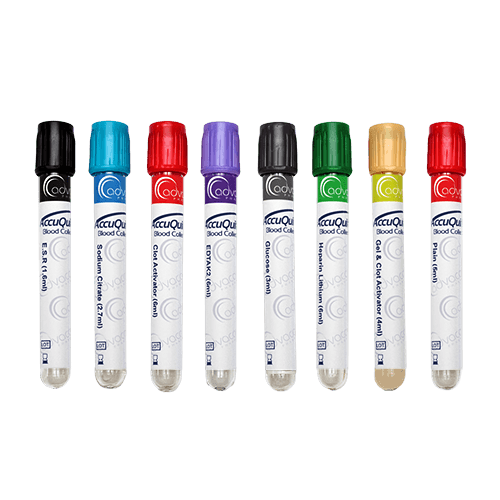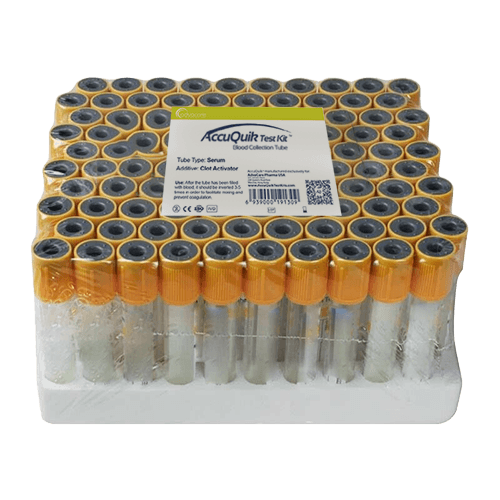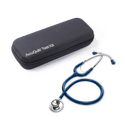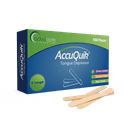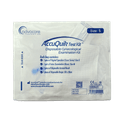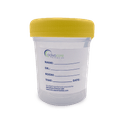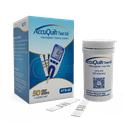- Home›
- Medical Devices›
- Diagnostic Detection Devices›
- Diagnostic Supplies›
- Blood Collection Tubes
Blood Collection Tubes
Type and Additive
Material
Size
Draw Volume
Packaging
What are Blood Collection Tubes?
Blood Collection Tubes are sterile containers that can be used for blood sample collection and storage for many types of laboratory tests and diagnostic procedures. Each tube is designed in order to preserve the integrity of the blood sample while also facilitating both the processing and analysis of the specimen.
Blood collection tubes are also called vacutainer tubes or blood collection containers. They can be used for biochemistry, immunology, and serology tests, as well as for diagnostic tests of infectious diseases. They are also commonly used for the determination of different parameters, such as coagulation or glucose.
Blood collection vacutainer tubes are available as plain tubes without any additives or with different additives for different uses. The color of the cap indicates the additive inside of the tube. The collection tubes are available in either PET or glass and in an assortment of sizes, including mini (11x40mm), 13x75mm, 13x100mm, and 16x100mm.
AdvaCare Pharma is the exporter and manufacturer of Blood Collection Tubes. These devices are produced in facilities situated strategically worldwide, which allows for better control of the supply chain. Our ISO and CE-certified manufacturing sites undergo regular inspections to ensure strict adherence to international standards.
Product Specifications
Type and Additive
Material
Plain - No Additive (Red)
Plain - No Additive (Red): This type of tube does not contain any additives or anticoagulants, which allows for the blood sample to naturally coagulate. They are commonly used for various laboratory tests that require serum or clot formation. The absence of additives maintains the sample's integrity and also enables precise diagnostic testing and analysis.
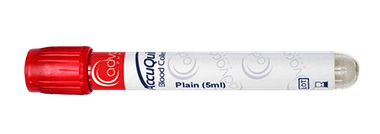
Serum - Clot Activator (Red)
Serum - Clot Activator (Red): A type of blood collection tube containing a clot activator additive. The clot activator activates the coagulation cascade and thus promotes the clotting of the blood. As a result, the serum separates from the clotted blood during centrifugation. The red-colored cap indicates the presence of this additive.
Serum - clot activator blood collection tubes are commonly used for tests that require serum samples, including some types of chemistry panels, hormone assays, and serology tests.
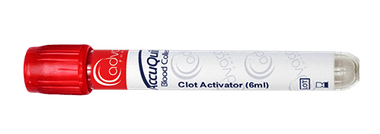
SSGT - Gel & Clot Activator (Yellow)
SSGT - Gel & Clot Activator (Yellow): A type of blood collection tube containing both a gel separator and a clot activator additive. During centrifugation, the gel develops into a distinct barrier between the serum and any cellular components, which allows for easy separation of the serum. The yellow-colored cap indicates the presence of this additive.
Gel & clot activator blood collection tubes are ideal for preparing serum for many types of tests, including chemistry panels, lipid profiles, liver function tests, and more.
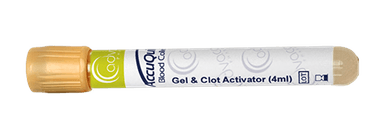
Glucose - EDTA / Sodium Fluoride (Grey)
Glucose - EDTA / Sodium Fluoride (Grey): A type of blood collection tube that is intended for the collection and preservation of blood samples for glucose testing. The tubes contain a combination of EDTA (ethylene diamine tetraacetic acid) and sodium fluoride, which act as anticoagulants and glycolysis inhibitors. This combination helps ensure accurate and reliable glucose measurements.
Glucose - EDTA/ sodium fluoride tubes are used in clinical settings, such as for glucose monitoring in patients with diabetes or those with suspected glucose metabolism disorders.
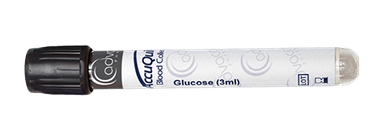
EDTA - K2EDTA / K3EDTA (Lavender)
EDTA - K2EDTA / K3EDTA (Lavender): A type of blood collection tube intended for the collection of whole blood samples for laboratory tests. These tubes contain EDTA (ethylene diamine tetraacetic acid) as an anticoagulant. The EDTA works by chelating calcium ions, which are necessary for the coagulation process, thereby preserving the blood sample in its liquid state.
EDTA - K2EDTA / K3EDTA blood collection tubes are commonly used in hematology and blood banking for tests like the complete blood count (CBC), blood typing, and cross-matching.
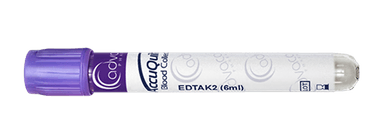
Heparin - Lithium Heparin / Sodium Heparin (Green)
Heparin - Lithium Heparin / Sodium Heparin (Green): A type of blood collection tube containing heparin as an anticoagulant. Heparin works by preventing coagulation and maintaining the sample in a liquid state. The addition of lithium or sodium to the heparin helps enhance the anticoagulant effect.
Heparin tubes are commonly used for tests that require plasma, like blood chemistry analysis and some coagulation studies.
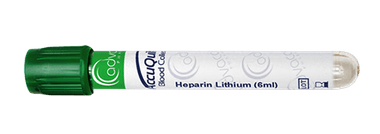
PT - 3.2% Sodium Citrate (Blue)
PT - 3.2% Sodium Citrate (Blue): A type of blood collection tube that has been designed for coagulation tests, especially the prothrombin time (PT) test. Each tube contains a buffered solution of 3.2% sodium citrate as an anticoagulant, which works by binding to calcium ions. This action allows for the collection of plasma, which is used for coagulation testing.
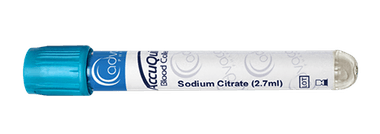
ESR - 3.8% Sodium Citrate (Black)
ESR - 3.8% Sodium Citrate (Black): A type of blood collection tube that has been specially designed for the measurement of the erythrocyte sedimentation rate (ESR). Each tube contains a buffered solution of 3.8% sodium citrate as an anticoagulant, which works by binding to calcium ions. ESR tests are often used to assess the presence or severity of inflammatory conditions.
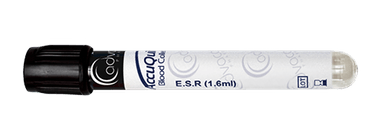
PET
PET blood collection tubes are made from polyethylene terephthalate (PET) plastic material, which is light and more durable than glass. They are nearly unbreakable, which allows for easy disposal of used collection tubes.
PET blood collection tubes are widely used for blood collection and preservation and are ideal for applications in clinical laboratories, blood banks, and diagnostic centers.
Glass
Glass blood collection tubes are fragile but allow for faster clot retraction. However, direct comparison in scientific studies has not shown significant differences.
Glass tubes require careful handling to prevent breakage and the risk of injury. This type of tube is typically used when working with specialized equipment that is designed for glass tubes.
Why are we a quality Blood Collection Tubes manufacturer?
AdvaCare Pharma is an American-owned pharmaceutical company that specializes in manufacturing Blood Collection Tubes, one of the diagnostic supplies in our wide range of AccuQuik™ diagnostic detection devices. Our company utilizes a unique supplier-distributor relationship that differentiates us from other large-scale medical manufacturers.
Over the past 20 years, AdvaCare Pharma has cultivated a strong reputation as a leading pharmaceutical distributor across 65 regions. Our well-established worldwide network includes distributors, hospitals, pharmacies, and many other institutions.
Uses
What are Blood Collection Tubes used for?
Blood Collection Tubes are primarily employed for the collection, storage, and transportation of blood samples. These tubes are used in various diagnostic procedures, aiding the analysis of blood parameters urgent for assessing a patient's health status, diagnosing diseases, and monitoring treatment efficacy.
In clinical settings, healthcare professionals rely on Blood Collection Tubes to obtain blood specimens safely and efficiently from patients. Whether for routine blood tests, specialized diagnostic assays, or research studies, these tubes provide a sterile and standardized method for sample collection. Blood Collection Tubes are needed for preserving the stability of blood components, such as serum or plasma, guaranteeing accurate test results.
How are Blood Collection Tubes used?
Healthcare providers must select the appropriate type of tube based on the specific diagnostic requirements and patient characteristics. Once selected, the procedure involves:
- Patient Preparation: Before blood collection, the patient's identification is verified to help sample traceability. Proper patient positioning and preparation of the venipuncture site are central for a successful blood draw.
- Venipuncture: Using sterile techniques, a healthcare professional performs venipuncture to access the patient's vein, usually in the arm. The selected Blood Collection Tube is then attached to the venipuncture device, such as a needle or cannula, allowing blood to flow directly into the tube via vacuum pressure.
- Blood Collection: The vacuum inside the tube assists the collection of the required volume of blood without the need for additional aspiration. Once the desired amount is obtained, the tube is gently inverted several times to confirm thorough mixing with any additives present.
- Labeling and Transport: Each Blood Collection Tube is labeled with patient information, collection date, and other pertinent details. Proper labeling encourages sample traceability and minimizes the risk of errors during subsequent processing. The tubes are then securely capped and transported to the laboratory for analysis, following established protocols for specimen handling and transport.
- Storage: Upon reaching the laboratory, the Blood Collection Tubes are stored under appropriate conditions, maintaining the stability of the collected blood specimens until analysis. Temperature control and adherence to storage guidelines are paramount in preventing sample degradation and obtaining accurate test results.
FAQs
What are the different types of additives available for Blood Collection Tubes?
There are 7 different additives available, and each tube is coded by the color of its cap. The additives available include Serum - Clot Activator (Red), SSGT - Gel & Clot Activator (Yellow), Glucose - EDTA/ Sodium Fluoride (Gray), EDTA - K2EDTA / K3EDTA (Lavender), Heparin - Lithium Heparin / Sodium Heparin (Green), PT - 3.2% Sodium Citrate (Blue), and ESR - 3.8% Sodium Citrate (Black).
Which Blood Collection Tubes should be used for specific tests?
The choice depends on the requirements of the test and the analytes being measured. Different tests may require different types of tubes with specific additives or anticoagulants, which can help to preserve the integrity of the blood sample while also ensuring more accurate test results.
Can Blood Collection Tubes be reused?
Blood collection tubes are intended for single use only and should not be reused. Each tube is manufactured as a sterile device in order to maintain the integrity of the blood sample.
Do your Blood Collection Tubes easily interface with existing healthcare infrastructure?
Indeed, our blood collection tubes are intricately engineered and produced to effortlessly interface with incumbent healthcare systems and workflows, streamlining the adoption process for healthcare practitioners.
Are samples of your Blood Collection Tubes available for evaluation?
Yes, we provide samples of our medical devices for evaluation and product registration. Get in touch with our International Sales Department to request samples and discuss your unique needs.
Do your Blood Collection Tubes adhere to international regulatory protocols?
Yes, our blood collection tubes are designed and manufactured to meet or exceed international regulatory standards, including but not limited to CE, ISO and USFDA certifications, ensuring safety and efficacy for patients worldwide.
Is regulatory support available for importing your Blood Collection Tubes?
We offer extensive regulatory support to our distributors, aiding in navigating local regulations and facilitating the importation of our blood collection tubes. With the expertise of our Regulatory Affairs Department, which includes qualified professionals such as pharmacists, biomedical engineers, QA specialists, and documentation experts, we ensure a seamless product registration experience.
References
Blood Collection Tube - An Overview
The study delves into blood collection tubes used for various purposes, such as coagulation studies and preserving rare cell types in blood. These tubes come in glass and plastic variants, each designed with specific additives and properties to ensure the integrity of blood samples for different tests and analyses. The importance of selecting the right type of tube, whether it contains sodium citrate, EDTA, heparin, or other additives, is highlighted to maintain sample quality and stability during collection and processing.

You might be interested in...
Why AdvaCare Pharma?
As an industry leader, we are aware of our responsibility to provide affordable and sustainable solutions to improve healthcare worldwide.
